Services
Before we know which treatment will be the most effective, we must understand the patient and his or her story. Effective treatment depends on making a correct diagnosis. To reach this point, Dr. Heron begins with a comprehensive psychiatric evaluation conducted from a medical perspective, while taking into consideration all of the other unique variables at play in a person’s life. Many factors interact to affect feelings, mood, thinking, and behavior: genetics and biology, personality, medical history, life experiences, family relationships, and current circumstances. During the session, you will be asked about various aspects of your life – your interests, hobbies, how you function at home, with family and friends, at school or work, as well as your sleep and eating habits. If needed, laboratory, psychological, and/or educational testing will be ordered.
- At the end of an evaluation, Dr. Heron will present her assessment of the problem. This evaluation combines biological, psychological, and social aspects with the developmental needs, history, and strengths of the patient. When a treatable problem is identified, recommendations are provided and a specific treatment plan is developed. Time is made available for any questions or concerns the patient or family may have. Dr. Heron’s goal is to be a partner and support patients and families. If a patient is already working with a trusted therapist, Dr. Heron highly values collaborating with that therapist to coordinate care
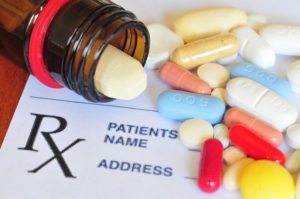
- Medications may be prescribed if indicated, but they are only one element of a treatment plan and are not used in all cases. Dr. Heron is conservative and deliberate in her approach to medication management of psychiatric illness, and she will commonly incorporate psychotherapy and non-medication, alternative options to tailor a treatment plan for each individual patient.
- At appropriate times, adding medication to therapy can be critical to success. Medication may decrease harmful behaviors and thoughts and may even be necessary to regain mental and physical wellbeing. Some medications work very quickly to reduce anxiety and hyperactivity. Other medications, especially those for mood disorders like depression, can take many weeks or months to become fully effective. Once a medication is started, adjustments will be made accordingly. Close contact in between sessions with phone calls and timely follow-up sessions every two weeks are typically required after initiating a medication. The frequency of these visits will decrease based on the outcome of the treatment
Psychotherapy -- also called "talk therapy" or just plain therapy -- is a process whereby psychological problems are treated through communication and relationship factors between an individual and a trained mental health professional.
- While most psychotherapy hinges on communication between the therapist and the individual, it is much more than talking about your problems. While family or friends can help you feel better or even provide good advice for change, this is not psychotherapy. Psychotherapy is a professional relationship between a therapist and a client that is based on therapeutic principles, structure and technique
Dr. Heron treats adolescents in a collaborative fashion, which typically will involve family members, pediatricians, counselors, and school staff.
Parents of adolescents who observe the following behaviors may benefit from a mental health evaluation:
- Marked change in school performance
- Inability to cope with problems
- Marked changes in sleeping and/or eating habits
- Frequent physical complaints
- Sexual promiscuity
- Prolonged negative mood and attitude, poor appetite, difficulty sleeping, or thoughts of death
- Recurrent nightmares
- Thoughts of causing harm to oneself or others
- Self injurious behavior, including “cutting”
- Self destructive behavior and habits (smoking, alcohol, or drug use)
- Frequent outbursts of anger and aggression
- Threats to run away
- Aggressive or non-aggressive violation of the rights of others, including opposition to authority, school attendance problems, theft, or vandalism
- Strange thoughts, beliefs, feelings, or unusual behaviors
Dr. Heron is passionate about treating mental health conditions in older adults. Depression, anxiety, and other mental health problems may present differently as people age, and they can contribute to the worsening of other medical conditions, including heart disease, cancer, and memory impairment.
- Dr. Heron’s expertise as a psychiatrist gives her the clinical perspective to determine if a patient’s coexisting medical conditions and medications are contributing to a mental health problem. Dr. Heron is conservative with the use of psychiatric medication in older adults, because the aging process changes the manner in which medications are processed by the body. In addition, Dr. Heron is trained to address the unique challenges posed by treatment of mental health problems and agitation in people with memory impairment.
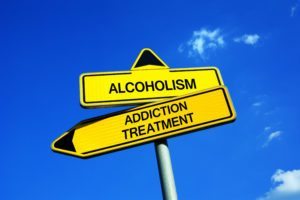
ASAM Pocket Guidelines and Patient Guide - ASAM Opioid Patient Piece
- Dr. Heron is licensed by the Drug Enforcement Administration to prescribe buprenorphine products, including Suboxone, for outpatient opiate detoxification. This is a treatment option that is reserved for highly motivated and carefully screened patients as part of a comprehensive addiction treatment program. Please call the office to speak with Dr. Heron if you feel you are a candidate for this treatment.
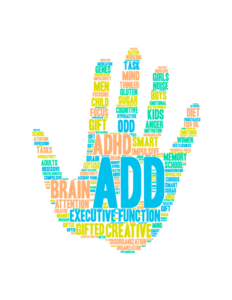
- Without proper treatment, the child will have difficulty paying attention in class, not complete schoolwork, and thus attain low grades. The symptoms of ADHD in childhood can continue into adulthood, especially if left untreated, and can cause significant problems in holding steady jobs and maintaining healthy relationships
Depression is a widespread mental illness that causes intense feelings of sadness, hopelessness, and personal emptiness. It can be brought on by stress, regret, trauma, loss, or even a genetic predisposition to developing the disease. Basic functions (sleep, attention, appetite, energy) can be so impaired that daily life activities become painful to tolerate. Like adults, children and teenagers can have depression. About 5 percent of children and adolescents suffer from depression, but the behavior of depressed children and teenagers may differ from the behavior of depressed adults. The child and teenager may complain of boredom, become very irritable, or complain of frequent headaches and stomachaches. Depressed adolescents may abuse alcohol or other drugs to cope with their feelings. Fortunately, depression can be successfully treated with a combination of treatments, including medication and therapy.
- Did you know…
- that depression is estimated to affect roughly 1 in 10 American adults? The Centers for Disease Control reports that this mental illness can be found in people of all ages and backgrounds, although it seems to be more prevalent within certain populations. Those at heightened risk of depression include:
- People between the ages of 45 – 64
- Females
- African Americans and Hispanics
- People without a high school diploma
- Divorced or widowed people
- Unemployed individuals
- Uninsured people without health coverage
- Treatment:
- If you suspect that you may have the symptoms of depression, it is important to seek help immediately. Psychiatric therapies and certain anti-depressant medications may be effective for helping you manage your symptoms. Furthermore, certain dietary and lifestyle changes, such as exercise and better sleep habits, may prevent depression and help you find relief from symptoms.
Bipolar Disorder, also known as Manic-Depressive Illness, consists of fluctuations between high, low, or irritable moods. Some people may have mostly depression, while others have a combination of manic and depressive symptoms. Manic symptoms include severe mood swings, unrealistic or grandiose self-esteem, excessive energy leading to little sleep, and rapid speech and movement. Bipolar Disorder can begin in childhood and during the teenage years, although it is usually diagnosed in adult life. The diagnosis of Bipolar Disorder in children and teens is complex and involves careful observation over an extended period of time
- Did you know…
- that bipolar disorder can affect anyone at nearly any age? In most cases, the disorder onsets in the mid-20s, but there have been instances of bipolar disorder affecting people during childhood or even as late as age 50. The disorder does not discriminate between genders, ethnicities, or social classes, but a majority of people who are diagnosed as bipolar seem to have a genetic predisposition to the disease. Altogether, the National Institute of Mental Health estimates that approximately 5.7 million American adults have bipolar disorder
- Treatment
- If you or someone you know is experiencing the symptoms of bipolar disorder, it is imperative that you seek immediate treatment from a psychiatric health provider. Bipolar disorder can be especially dangerous if left untreated, and because the illness is long-term, patients are often unable to recover or improve on their own.
- Identifying bipolar disorder means undergoing physical examinations, as well as documenting changes in moods. A psychological assessment may also be necessary to make an accurate diagnosis. If tests are positive for the condition, treatment will begin.
- Although there is no cure for manic-depressant disorders, there are effective ways of managing symptoms using FDA-approved mood stabilization drugs and anti-depressants. Many patients and their families also benefit from being educated about bipolar disorder and undergoing cognitive behavior therapy and family-focused therapies for coping measures.
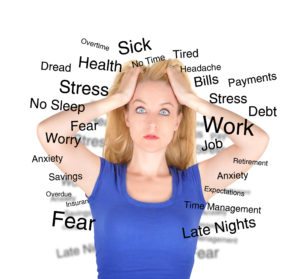
- Did you know…
- that anxiety is the most common mental illness in America? According to the Anxiety and Depression Association of America, anxiety affects 18 percent of the adult population in the U.S. However, of the 40 million adults over age 18 suffering with anxiety, only about 13 million are actively seeking treatment or being treated for the disorder.
- Examples of common anxiety disorders include:
- GAD (Generalized Anxiety Disorder) – a condition that is conducive to ever-present stress or worry about day-to-day responsibilities, confrontations and problems. GAD is most common among women, and symptoms may include headaches, problems sleeping, difficulty breathing and irritability.
- PTSD (Post-Traumatic Stress Disorder) – a condition that occurs as the result of a traumatic event that involves physical harm. Often, PTSD affects individuals who were previously victimized in an auto accident or crime, or who witnessed harm to another person, such as during warfare. PTSD often presents in the form of flashbacks or nightmares, although some victims become violent, emotionally distant or suspicious of the intentions of others.
- OCD (Obsessive Compulsive Disorder) – a condition that compels a patient into compulsive or obsessive behaviors without rationality. Individuals who suffer from OCD may have certain rituals or superstitions that cause disruption to daily life or relationships.
- Phobias – a condition diagnosed due to a deeply concentrated fear of particular places, activities, people or objects. Phobias can incite panic, dread, and trepidation in sufferers, and it can influence decisions and relationships.
- Panic Disorders – a physical condition that causes a victim to experience sudden panic and a feeling of a loss of control. Panic disorder is diagnosed after repetitious occurrences of panic attacks that may cause difficulty breathing, chest pains, nausea, numbness, and heart palpitations. Panic disorders present with real physical symptoms, some of which may be severe.
- Treatment
- Treatment for anxiety disorders depends on the type and severity of the condition a particular patient suffers from. Psychiatric care is typically required to make symptoms more manageable. Treatment programs may include medications, cognitive behavioral therapy, psychotherapy, and even deep brain stimulation. Often, anxiety disorders are related to or accompanied by other health conditions or habits, such as alcoholism or depression that must be simultaneously treated to improve chances of recovery
An episode of psychosis occurs when a person has a break from reality and often involves strange thinking, feelings, perceptions, and unusual behavior. Psychosis can develop for many reasons, such as genetics, drug abuse, severe depression, bipolar or anxiety disorders, or schizophrenia. Psychosis is more common in adults. However, young adults may experience an episode of psychosis due to hormonal changes in the brain occurring in puberty. Children may experience visual and auditory hallucinations, although this is more likely due to their imagination, immature cognitive development, anxiety, or depression rather than a serious psychotic episode. In most of these cases, psychotic symptoms resolve. A more serious illness of chronic and persistent psychosis is schizophrenia, which is very rare in children. Approximately 3 in 100 people will experience an episode of psychosis during their lives, but with early intervention and proper treatment, positive outcomes can be achieved.
Obsessive Compulsive Disorder (OCD) is an anxiety disorder characterized by a need to perform certain compulsions or rituals, causing severe distress and interfering with daily functioning. Frequently, the compulsions or rituals are unrealistic or irrational. Although OCD presents very differently in every patient, examples may include:
- Repeatedly checking something, such as messages on an answering machine or settings on an alarm clock
- The need to keep things in a certain order
- Excessive hand washing or hoarding
- Counting or repeating words to oneself
- Did you know…
that obsessive compulsive disorder affects 1 in 100 U.S. adults each year? Of those, the National Institute of Mental Health reports that approximately 50 percent suffer from a severe form of the disorder. Although OCD can affect anyone at nearly any age, it is most prevalent among adults between the ages of 18 and 44. The average age for the onset of OCD is 19.









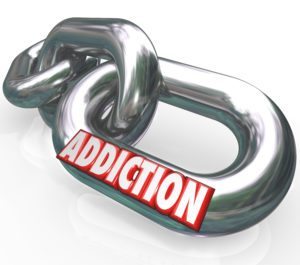


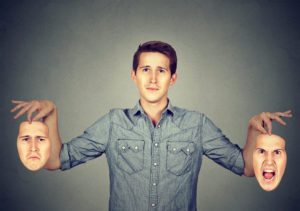
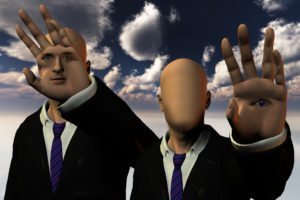
 Obsessive Compulsive Disorder (OCD) is an anxiety disorder characterized by a need to perform certain compulsions or rituals, causing severe distress and interfering with daily functioning. Frequently, the compulsions or rituals are unrealistic or irrational. Although OCD presents very differently in every patient, examples may include:
Obsessive Compulsive Disorder (OCD) is an anxiety disorder characterized by a need to perform certain compulsions or rituals, causing severe distress and interfering with daily functioning. Frequently, the compulsions or rituals are unrealistic or irrational. Although OCD presents very differently in every patient, examples may include: